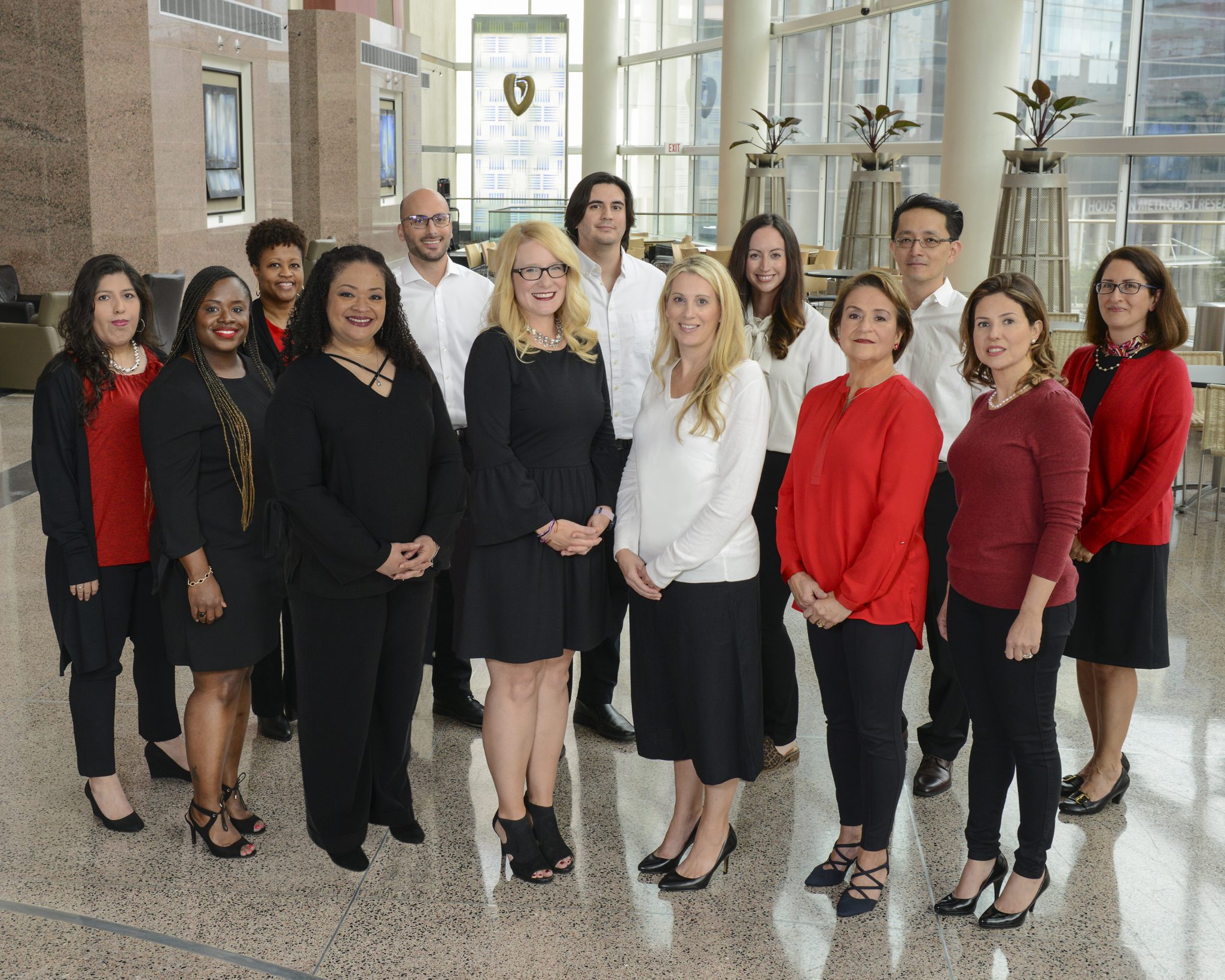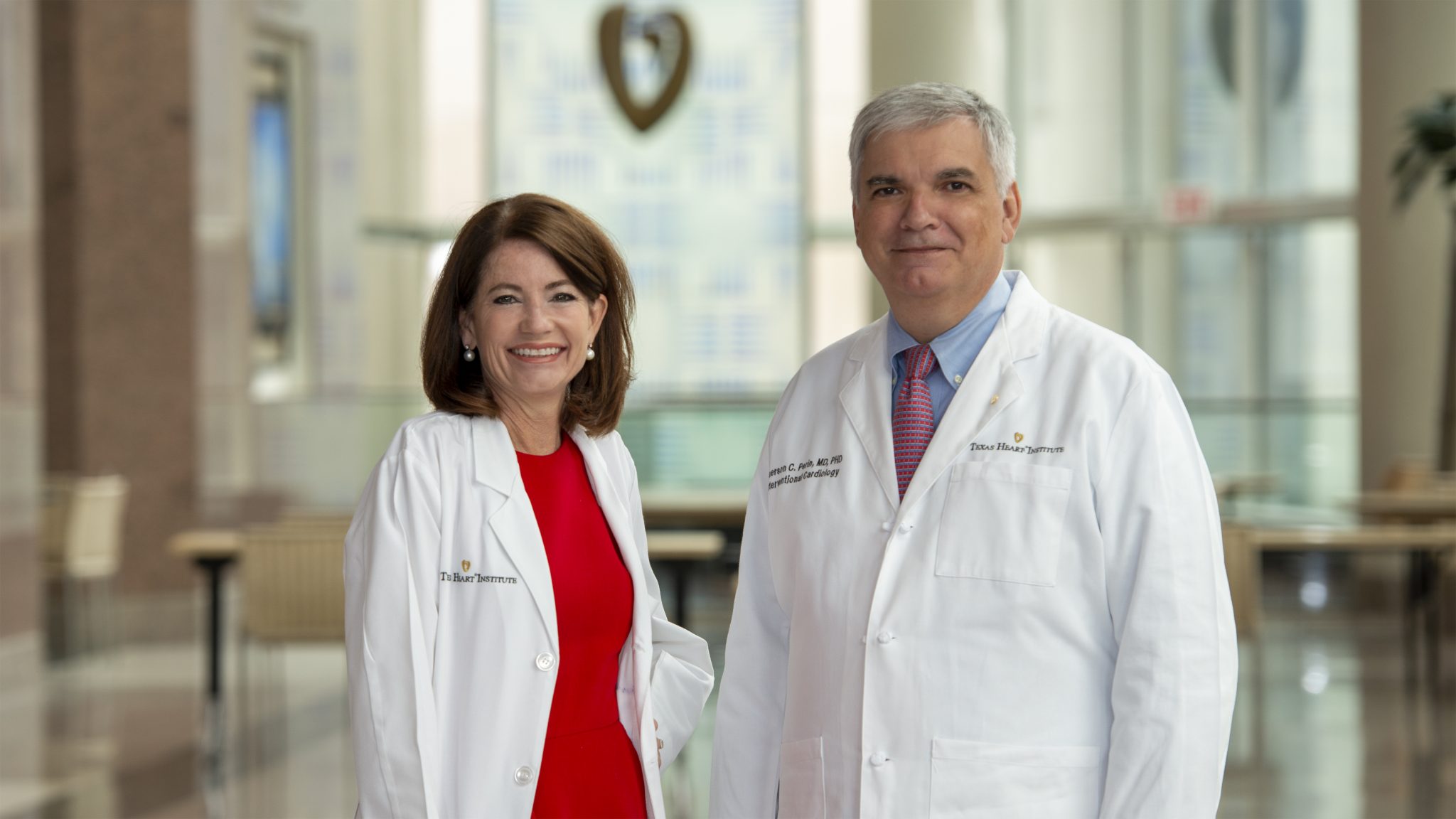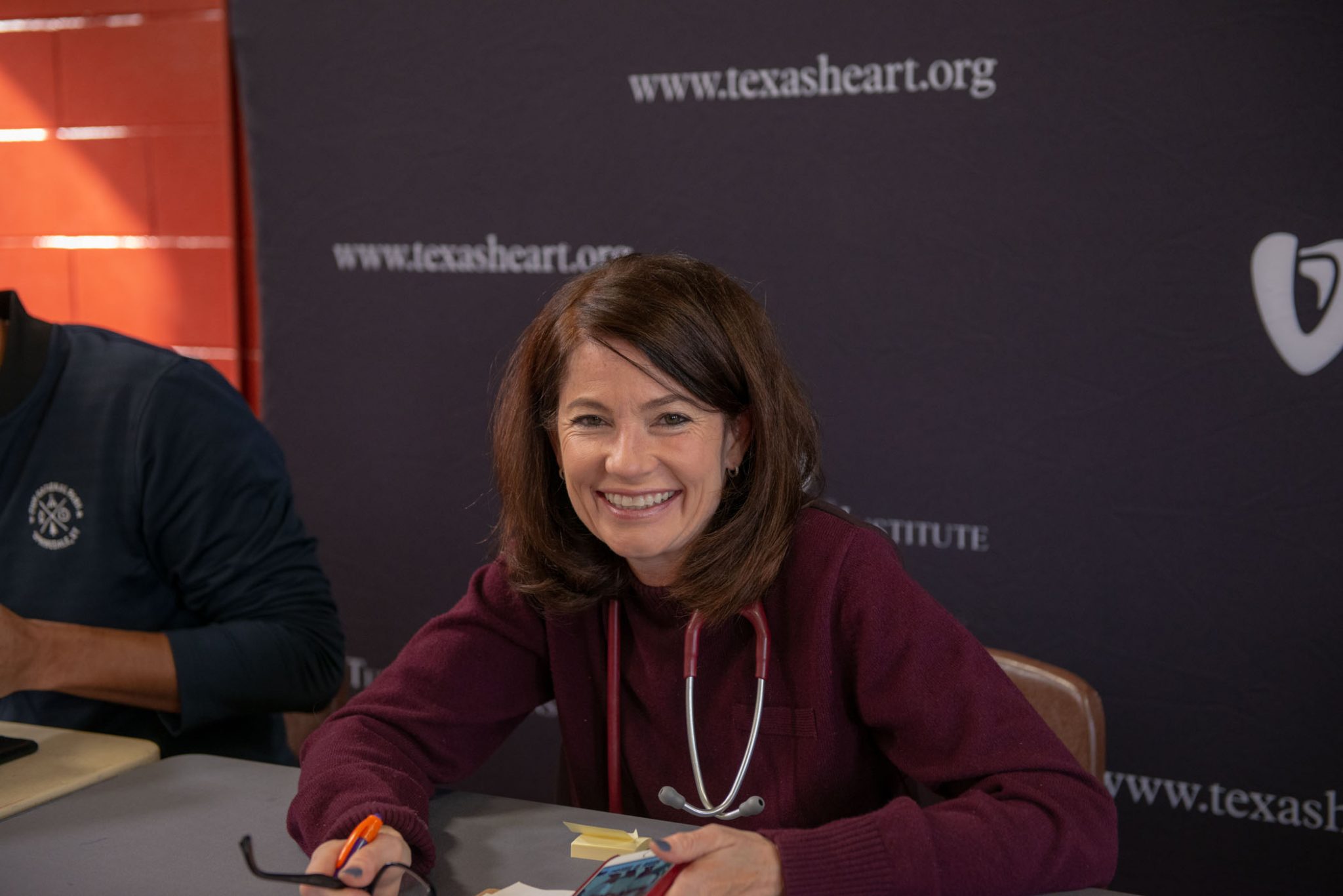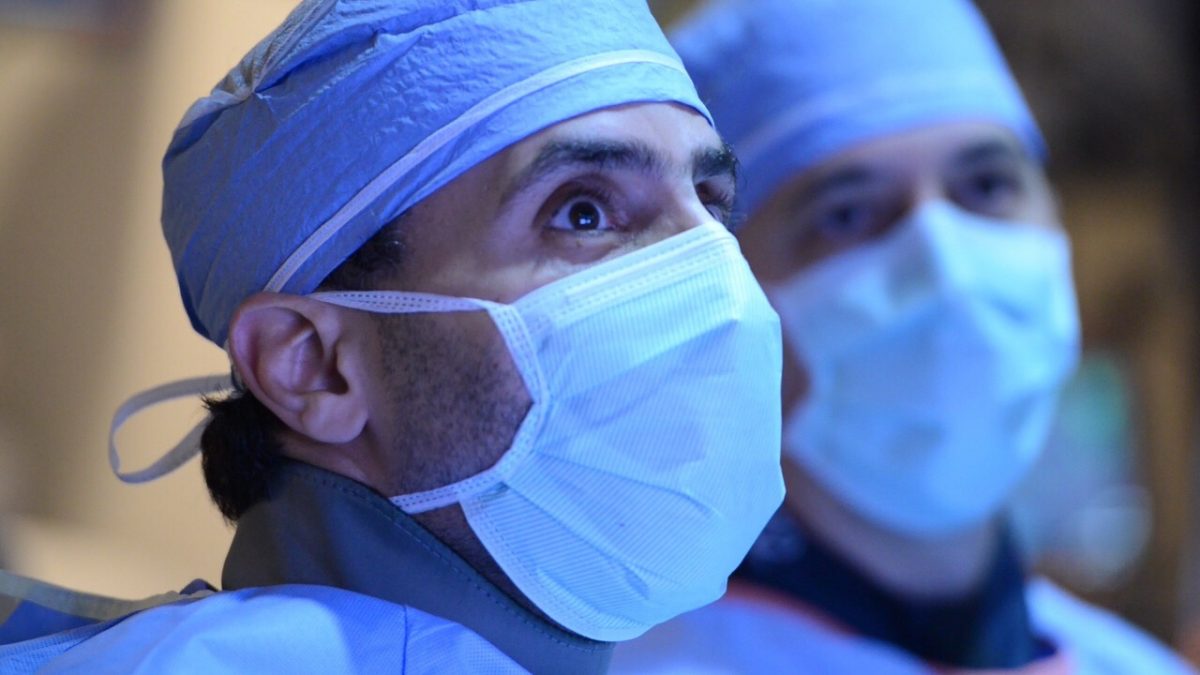The crux of what separates Texas Heart Institute (THI) from other institutions around the world is innovation. Dr. Emerson Perin, MD, PhD, FACC, Medical Director of the Center for Clinical Research (CCR), has been leading the charge of advancing cardiovascular medicine through clinical research for several decades, with the help of Jennifer Chambers, Director of the Office of Research Administration and Aryn Knight, Administrative Director of the Center for Clinical Research (CCR).
The Center for Clinical Research is a multifaceted arm of THI that is changing the dynamics of patient care by providing new therapies and treatments for cardiac patients and leading the way in clinical research.
The Work of the Center
The CCR is a unique conglomeration of clinical research experts who support all areas of cardiovascular clinical research by pushing the envelope of discovery.
The CCR team members are specialized clinical research professionals with over 200 years of research experience combined. With all this expertise comes the ability to offer many diversified services including study development and feasibility, research operational support, regulatory consultation and support, streamlined patient recruitment, quality assurance and compliance, and trial coordination.
One element that sets this research site apart from others around the world is the clinical research recruitment division. This division is a dedicated team that identifies patients who meet the rigorous requirements for each clinical trial being performed within the CCR.
Other CCR Regulatory Service
The CCR has extensive knowledge and experience in providing clinical care options to patients who are not candidates for active clinical trials through compassionate use, emergent use, and humanitarian use. The CCR team is well-versed in bringing these options to patients with critical needs.
- Compassionate Use – This involves the use of an investigational medical product outside of a clinical trial for patients who do not meet the protocol inclusion criteria for entry into the trial but need the trial therapy.
- Emergent Use – This allows the use of a non-FDA approved investigational product or device or the use of approved medical products in an unapproved way to diagnose, treat, or prevent serious disease in patients.
- Humanitarian Use – This pathway involves the use of a medical device that is intended to benefit patients by treating a disease that affects fewer than 8,000 individuals in the United States per year.

Trials in Progress
The CCR conducts all types of trials ranging from a medical device to investigation product/therapy studies.
Device Trials
ALIVE – This trial is examining a less-invasive way to treat left ventricular aneurysms (LVAs). The Alive study is testing an investigational device that can potentially repair LVAs without using a heart-lung machine or opening the chest/heart chamber. The device works by placing a tuck in the heart where there is scar tissue, which shortens the distance across the heart and decreases the tension, or stress, on the working heart muscle. To place the investigational device, the physician inserts a catheter through the jugular vein in the neck and makes a small cut in the skin of the chest. A thin needle is passed through the scarred area of the heart followed by a wire to secure anchors. Currently, large LVAs causing serious symptoms are only treated by open heart surgery. This trial has the potential to offer a less invasive way to treat LVAs. Sponsor: BioVentrix, Inc.
Anthem – The VITARIA System delivers autonomic regulation therapy (ART) using vagus nerve stimulation in patients who have symptoms of heart failure despite receiving guideline-directed medical therapy. ART is a novel approach for treating heart failure. This device is designed to improve heart function and to reduce heart failure symptoms by stimulating the vagus nerve. The idea is that this therapy will better balance the two branches of the nervous system that the brain uses to control the heart, thus restoring homeostasis. Sponsor: LivaNova USA, Inc.
Solve-CRT – This is a trial designed to assess the safety and efficacy of WiSE pacing technology in heart failure patients who have not responded to or are unable to receive conventional cardiac resynchronization therapy (CRT). CRTimproves the heart’s rhythm but may not work for all patients. The WiSE CRT system is the only wireless technology pacing system used within the heart to stimulate the heart’s left ventricle. Sponsor: EBR Systems
Excluder – This trial examines the safety and effectiveness of the Gore Excluder AAA Endoprothesis to repair aortic aneurysms in an approach that is less invasive than open surgery. The Excluder device allows for the endovascual repair of aneurysms. The device is placed inside the abdominal aorta and extends into both leg arteries. The Excluder device will block blood flow into the aneurysm in the abdominal aorta while maintaining blood flow to the arteries in the legs. Sponsor: Gore
Performance II – This open-label study evaluates the safety and effectiveness of the Neuroguard IEP System for the treatment of carotid artery stenosis in patients at increased risk for adverse events after carotid endarterectomy. The Neuroguard IEP System is a 3-in-1 carotid stent delivery system consisting of an angioplasty balloon, an integrated embolic protection device, and a nitinol self-expanding stent loaded over the balloon and constrained by an outer sheath. Sponsor: Contego Medical
Less VT – The purpose of the study is to assess the safety and efficacy of the FlexAbility™ SE Ablation Catheter in reducing the number of ventricular tachycardia (VT) episodes in patients who continue to experience VT despite taking antiarrhythmic medications (to prevent abnormal heart rhythms) or who are unable to take antiarrhythmic medications. The FlexAbility™ SE Ablation Catheter is approved in the United States to treat irregular heartbeats in the atria (upper chambers of the heart). This study is testing the use of the same catheter to treat VT and is therefore considered experimental in the United States. Sponsor: Abbott
Portico – The PorticoTM Transcatheter Aortic Valve is indicated for patients with symptomatic severe aortic stenosis who are considered to be at high or extreme risk for surgical repair. The purpose of the study is toevaluate the safety and effectiveness of the SJM Portico Transcatheter Heart Valve and Delivery Systems inserted via transfemoral methods in this high-risk patient group. With the currently enrolling Valve in Valve cohort, the means of treatment are expanded to failed surgical bioprosthetic transcatheter aortic valve replacement in surgical aortic valve replacement (TAVR-in-SAVR). Sponsor: Abbott
Optimize – The Optimize trial tested the Svelte Drug Eluting Coronary Stent by comparing it to any commercially approved Abbott Vascular Xience or Boston Scientific Promus Drug Eluting Coronary Stent (control DES). The study recruited patients who were diagnosed with symptomatic ischemic heart disease in one or two coronary vessels. The Optimize trial is currently closed to enrollment but is actively following patients enrolled in follow-up for 5 years after the procedure. Sponsor: Svelte Medical Systems, Inc.
Drug Trials
CHIEF-HF – Canagliflozin: Impact on Health Status, Quality of Life and Functional Status in Heart Failure(CHIEF-HF) is a decentralized, digitally-driven clinical trial comparing the efficacy of Canagliflozin a drug already approved for use in diabetes, with placebo in improving the quality of life in patients with heart failure. The study activities are all performed virtually using an app on a smartphone and a wearable device. Sponsor: Janssen
Heart-FID – This trial examines the use of an intravenous infusion of iron for patients who have heart failure and iron deficiency to see if it improves symptoms and overall quality of life. Specifically, the investigators will assess if intravenous infusion of iron (Injectafer® )reduces death and hospitalizations associated with heart failure and improves daily function in patients with heart failure with iron deficiency and reduced ejection fraction. The safety of Injectafer® will also be examined. Sponsor: American Regent
Active 3 TICO Covid – TICO (Therapeutics for Inpatients with COVID-19) is a master protocol to evaluate the safety and efficacy of multiple investigational agents aimed at modifying the host immune response to severe acute respiratory syndrome coronavirus 2 (SARS-CoV-2) infection, or directly enhancing viral control in order to limit disease progression. All participants will receive standard of care (SOC) treatment. If an investigational agent shows superiority over placebo + SOC as initially defined, SOC for future investigational treatment evaluations will be modified accordingly. The initial investigational agents will be neutralizing monoclonal antibodies. Grant: National Institute of Allergy and Infectious Diseases (NIAID)
Stem Cell Studies
For the last 20 years, THI has been studying the use of cell therapy to treat cardiovascular disease, with a primary focus on heart failure. Another approach involves using gene therapy to promote cardiomyocyte replication. Many studies are being performed utilizing bone marrow cells obtained from the individual receiving the cells (autologous) and cells obtained from another individual (allogenic). Imagine if you could use cells from a healthy donor that naturally self-renew to deliver a potent cell therapy. Cell-based therapies for heart failure have entered an exciting new era with the first large phase three trial underway.
MDACC THI MSC – The purpose of this study is to learn if adding mesenchymal stem cells (MSCs) to standard of care drug therapy can help control heart failure that may have been caused by anthracycline (a type of chemotherapy drug used in cancer treatment). Sponsor: Texas Medical Center
DCM II – This study is designed to evaluate the safety and effectiveness of the transendocardial injection of human allogeneic mesenchymal stem cells compared with placebo in patients with non-ischemic dilated cardiomyopathy (DCM). Grant: U.S. Department of Defense (DOD)
CardiAMP – The CardiAMP Heart Failure Trial is studying an investigational stem cell-based therapy for ischemic heart failure (the type that develops after a heart attack). The therapy takes a personalized and minimally invasive approach to the use of a patient’s own cells in treating ischemic heart failure, and is designed to stimulate the body’s natural healing response. Sponsor: BioCardia, Inc
Focus Bright – This is a randomized controlled double-blind trial of the intramyocardial injection of autologous aldehyde dehydrogenase-bright stem cells under electromechanical guidance for therapeutic angiogenesis. This principal investigator-initiated clinical trial tested the ability of aldehyde dehydrogenase brightstem cells—a group of multilineage stem and progenitor cells—to stimulate the growth of new blood vessels. These cells were isolated from the patient’s own bone marrow and then injected back into the heart around the area of damage by using a special guidance and injection system. The study is closed to patient recruitment and is in the long-term (15 year) follow-up phase. Sponsor: Texas Heart Institute.
Registry Trials
A Global cVAD Registry – The goal of the global catheter-based ventricular assist device (cVAD) registry is to collect clinical, procedural, and outcome data from hospital medical records for patients who received one or multiple Impella devices in routine clinical care across all participating sites without preselection. Sponsor: Abiomed
Houston HeartReach Registry – In conjunction with the THI Center for Women’s Heart and Vascular Health, this community-wide registry study aims to improve heart disease prevention, diagnosis, and treatment for all women. Sponsor: THI Internal funding
Diagnostic
Catch HF – Characterization of Ambulatory NT-proBNP Cut-offs for Patients Possibly Having Heart Failure is a diagnostic trial for patients who have signs and symptoms suggesting heart failure. The purpose of this study is to test an investigational biomarker in blood that may help with the diagnosis of heart failure and to determine if it will help in predicting heart failure over time. Patients were recruited in an outpatient setting and consented for one blood draw (to determine proBNP levels) and a medical chart review or a telephone call for follow-up at one year. Currently, this project is closed for enrollment but remains open to enrolled patients. Sponsor: Siemens Healthcare Diagnostics, Inc.
Investigator-Initiated Trials
A standard at THI, the CCR aids in developing consent, protocol, and regulatory guidelines and IRB approvals for pending research throughout the nation. Current patient-recruiting investigator-initiated trials include two studies led by Dr. Mehdi Razavi.
Contact Force – This research study will determine if the electrical signals (voltage) needed to pace the heart (correct the heart rhythm problem) decrease when there is good contact between the electrodes (pacing instrument) and the heart. Furthermore, the study will determine if there is a difference in the amount of voltage required to pace the heart (threshold voltage value) between normal heart tissue and diseased tissue.
LA Pacing – This study is being done to determine if using a catheter that is routinely placed in the heart for cardiac ablation (elimination of abnormal pathways) of an irregular heart rhythm called atrial fibrillation (AF). This study is evaluating the efficacy of smaller internal shocks in converting AF to normal sinushythm in patients who are undergoing a clinically indicated ablation procedure to avoid unpleasant and potentially painful external shocks, which would otherwise be routinely required.







